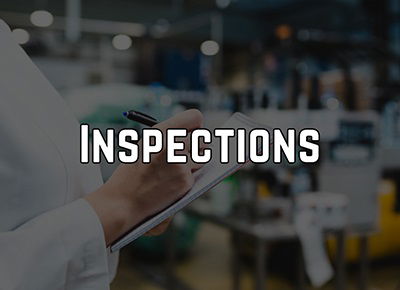Conducting Successful Complaint Investigations In Regulated Industries
🎤 Meredith Crabtree | 📅 Recording Available | 🕒 90 Minutes
Why You Should Attend:
Attending this training is essential for professionals in regulated industries who seek to enhance their expertise in complaint investigations. The dynamic and targeted 90-minute session offers the following benefits:
- Regulatory Compliance Mastery: Understand and master the intricacies of regulatory requirements for complaint investigations, ensuring your organization remains compliant with industry standards.
- Systematic Investigation Skills: Acquire systematic approaches and methodologies for conducting thorough complaint investigations, from initial data collection to root cause analysis.
- Enhanced Root Cause Analysis: Develop advanced skills in root cause analysis, enabling you to identify underlying issues and implement effective corrective and preventive actions to minimize recurrence.
- Communication Excellence: Learn communication strategies for dealing with complainants, internal stakeholders, and regulatory agencies, ensuring transparency and compliance with regulatory expectations.
- Optimized Documentation Practices: Explore best practices for comprehensive and compliant documentation of complaint investigations, providing a robust foundation for regulatory audits and inspections.
- Customer Satisfaction and Brand Integrity: Optimize complaint resolution processes to enhance customer satisfaction, foster brand integrity, and build trust among consumers.
- Risk Mitigation and Continuous Improvement: Mitigate risks associated with product quality and compliance by implementing the knowledge gained to drive continuous improvement in complaint handling processes.
- Professional Development and Networking: Elevate your professional profile by acquiring essential skills in complaint investigations, and connect with industry peers and experts during interactive sessions.
- Immediate Applicability: Benefit from practical exercises and real-life case studies that ensure immediate applicability of learned concepts in your day-to-day work.
By attending this training, professionals can position themselves as assets to their organizations, contributing to regulatory compliance, customer satisfaction, and overall organizational excellence. The program empowers participants to handle complaints with efficiency, effectiveness, and a strategic focus on continuous improvement.
Areas Covered in the Session:
- Introduction to Complaint Investigations:
- Understanding the significance of complaint investigations in regulated industries.
- Overview of regulatory expectations and standards governing complaint handling.
- Regulatory Landscape:
- In-depth exploration of regulatory requirements for complaint investigations.
- Identification and interpretation of relevant guidelines and standards.
- Initiating a Complaint Investigation:
- Systematic approaches for initiating a complaint investigation.
- Efficient data collection strategies and documentation best practices.
- Root Cause Analysis Techniques:
- Proficiency in root cause analysis to identify underlying issues.
- Application of root cause analysis outcomes for effective corrective and preventive actions.
- Communication Strategies:
- Best practices for communication with complainants, internal stakeholders, and regulatory agencies.
- Crafting clear and compliant communication plans during and after investigations.
- Documentation Throughout the Process:
- Importance of thorough and compliant documentation in complaint investigations.
- Best practices for maintaining comprehensive records throughout the investigation.
- Customer Satisfaction and Brand Integrity:
- Strategies to optimize complaint resolution processes for enhanced customer satisfaction.
- Building and maintaining brand integrity through effective complaint handling.
- Risk Mitigation and Prevention:
- Techniques for mitigating risks associated with product quality and compliance.
- Preventive measures to minimize the recurrence of similar complaints.
- Continuous Improvement Principles:
- Understanding the principles of continuous improvement in complaint investigations.
- Integration of lessons learned from investigations into ongoing improvement initiatives.
- Efficient Time Management in Investigations:
- Strategies for conducting efficient and effective complaint investigations within defined time constraints.
- The importance of timely responses in maintaining regulatory compliance.
- This comprehensive training covers a spectrum of crucial areas, ensuring that participants gain a holistic understanding of conducting successful complaint investigations in regulated industries. Practical exercises and real-life case studies enhance the application of knowledge in diverse scenarios.
Who Should Attend:
- Quality Assurance Departments
- Quality Control Departments
- Regulatory Affairs Departments
- Operations Departments
- Manufacturing Departments
- Risk Management Specialists
- Complaint Handling Teams and Analysts
- Compliance Officers
- Internal Auditors
- Product Development and R&D Professionals


